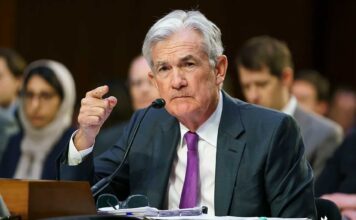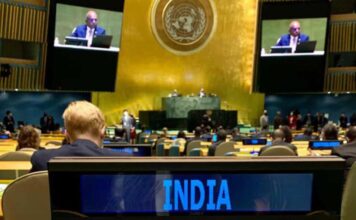The Greatest Recession of the Century: The Crippling Global Economy on the Verge of Collapse
The world is confused and horrified. With the human toll of COVID-19 infections on the rise, even the countries that once seemingly succeeded in containing the virus are now struggling with keeping their numbers down.
Countries are rushing to vaccinate their population to curb the spread, but so far, the outlook of the coming year from an economic point of view is at best uncertain. Stock markets defying gravity, joblessness at their peak, and closure of educational institutes for over a year are all pointing towards the tough-to-swallow fact that the world is heading towards a global depression, a long period of economic fall, of an intensity not witnessed since the 1920s.
Early this year, the World Bank predicted that the world economy is experiencing a subdued recovery after the cataclysmic COVID pandemic.
Witnessing the small uprise in the financial curve is fueling optimism in investors and business people to start new ventures. However, the concealed truth behind the spiking number is, the global economy can crash anytime after October 2021.
The Worst-hit Industries
Commercial properties, especially offices, showrooms, stores, shops, etc., have been deserted for over a year. Without enough crowd, banks are not passing commercial loans for buying or leasing such properties leaving the businessmen with little to no money for investment.
Those already in bank debt are unable to repay their commercial mortgages, residential, business, or personal loans. In addition, millions of property owners suffering from the recession cannot deposit their mortgages to the bank. Sooner or later, all this debt will fall on the hands of banks, which they are unable to collect from the borrowers, thus hampering the most crucial part of the country’s economic cycle.
So far, the worst-hit industries are the hotel and aviation industries. The complete halt in businesses triggered by the once-in-a-century pandemic is generating ugly stats and is sending sellers and buyers into hibernation.
The global economic crash will begin with the commercial real estate industry, followed by a steep fall in the residential real estate, stock market, business & trade. The crash will slowly crawl its way to almost every single market. Depending upon the current market trend, a recession worse than the Great Recession of 2008 is on the way.
Imagine getting a property worth a million dollars sold for less than half the price or getting a car for less than ten thousand dollars. The simmering volcano of the worst economic crisis in decades as a contribution of numerous factors could make this happen anytime after October 2021.
At the beginning of the pandemic, the G-7 countries and their banks supported only some businesses and workers with a credit line and income support in the hope of the virus’s soon eradication. The optimism of vaccination is boosting the financial markets. It elevates the stocks, but this bridge is not capable enough to fill the gap between the past and future economic vivacity. The crunch on both supply and demand is profoundly damaging the global trade, which will later create huge hurdles in imposing lockdowns when the infection will surge again.
The Only Gateway
The volcano of global depression has been silently simmering since the beginning of the coronavirus pandemic and is on the verge of down-turning the economic curve even more.
We hold on to the false hope that vaccines will protect us from coronavirus’s new robust variants. However, unfortunately, new, more contagious mutations like the Delta variation are already failing many vaccines, and to make things worse, thousands are dying even after vaccination.
Upcoming 3rd wave, followed by 4th, and so on, will continue for upcoming years. New waves of stronger COVID-19 strain will again put millions of lives around the globe in peril. Personal safety measures and social distancing must be followed until we succeed in eradicating this infectious virus.
The global economic and health crisis is not the right time to invest any money in real estate, cars, or luxury items. In the stock market, Cryptocurrencies like Bitcoin and Dodge are also not the safest bets for the time being. It is best to have money at your disposal during this catastrophe, therefore banks are currently the most secure place to keep your money.
Previously presumed to be temporary and curable by mass vaccination, the experts failed to understand that the virus is here to stay for many years to come. With no end in sight, only changing the way we live and work can help in reducing the severity of the most significant global depression of the century.
From a practical point of view, it is time to take responsibility for the tough decisions. Coordination in virus containment at the international level could help low-income countries avoid the worst destruction from the foreseeable depression. But, unfortunately, today’s lack of international leadership could make tomorrow worse.
If the global pandemic can teach us to work together for the greater good. In that case, avoiding such future cataclysmic emergencies will get easier, but unfortunately, that is not the path we are headed towards.
About the Author: Hemant Kaushik (Harry)
Mr. Hemant Kaushik (Harry) is CEO and Chairman of one of the world’s leading business consulting companies International Brand Consulting Corporation and globally admired USA TV NEWS Corporation, Berkshire Media, and the World Economic Conference. Currently based in the US, Mr. Kaushik is renowned for his practical business-world & economic knowledge and global market analysis. In the great depression of 2008, his analysis helped many global companies prepare for the financial crisis beforehand and save billions of dollars. Having worked with the most renowned brands and businesses, Mr. Kaushik has written many insightful articles covering varied topics of the global economy.













